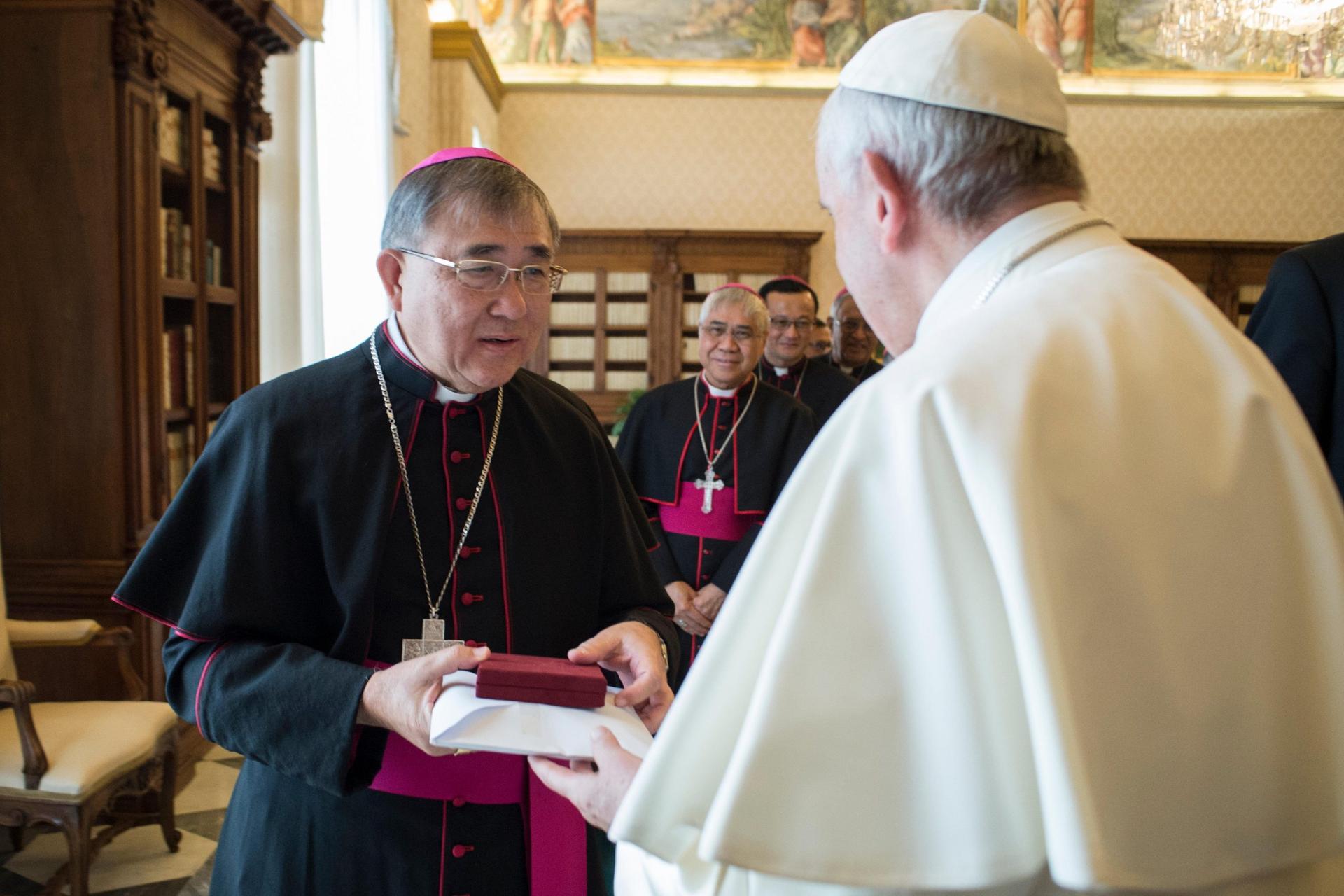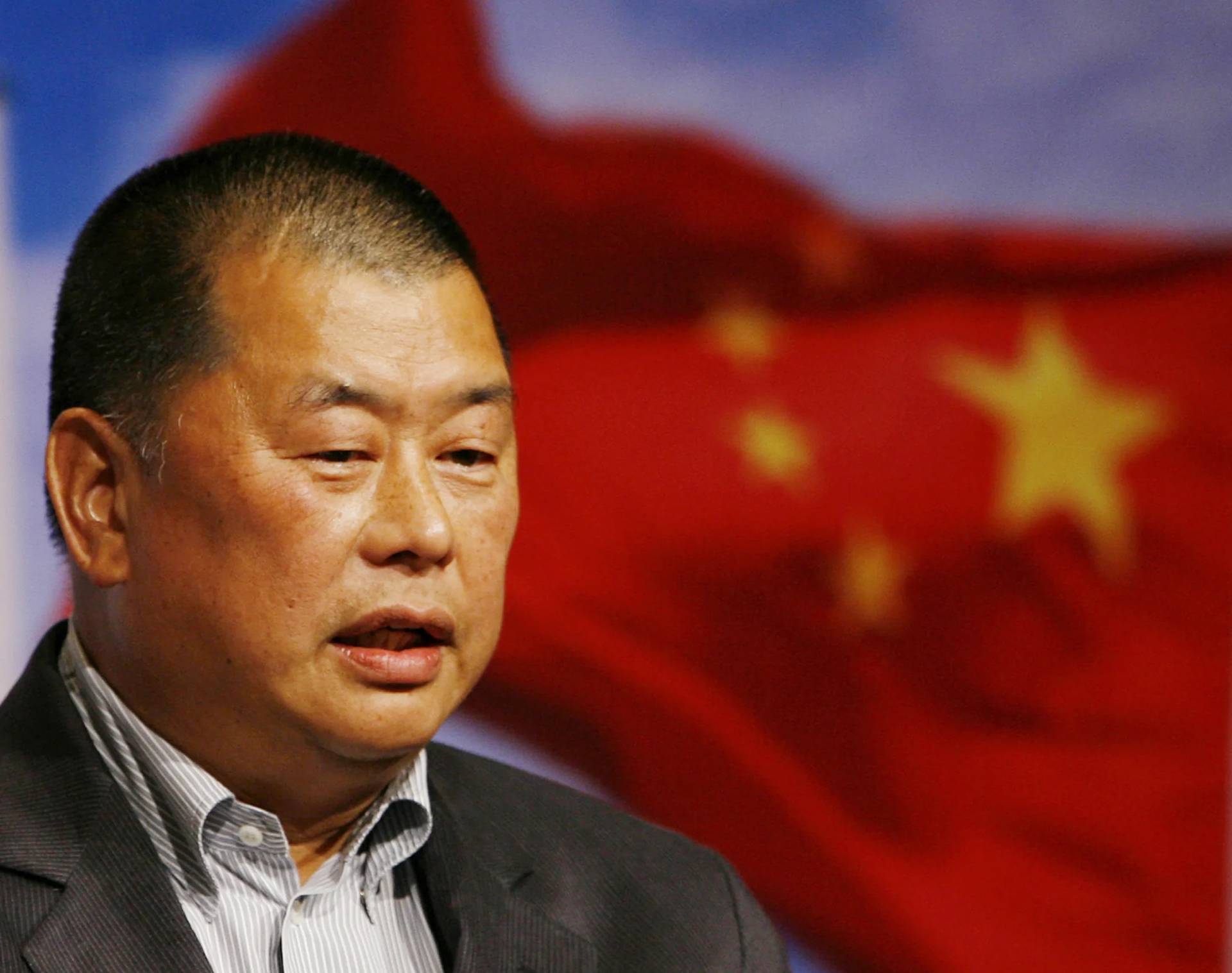ROME – A self-described ‘crypto-charismatic,’ Brunei’s new and first-ever recipient of a red hat, Bishop Cornelius Sim, said he never dreamed of being a priest, let alone a cardinal, but welcomes his appointment “with open arms.”
A former student of the Franciscan University of Steubenville in Ohio who holds degrees in theology and engineering, Sim was Brunei’s first local priest, and on Nov. 28, he is set to become the nation’s first-ever cardinal.
Speaking of his appointment, Sim told Crux on a video call from his office that “it was unexpected, but in many ways, it was something that I welcomed with open arms,” which he said has been the story of his vocation.
“My path to the priesthood is a little bit weird. Number one, I never wanted to be a priest. I kind of got hijacked into this job,” he said.
In 1985, Sim quit his job and went to study theology at Franciscan University.
“I was a card-carrying charismatic at the time, and I am still a crypto-charismatic,” he said, but added that his participation in the charismatic movement has been less pronounced over the years.
After obtaining his degree in 1988, Sim returned home to Brunei, where the clerical presence was largely made up of expat priests and religious sisters returning to their native countries either due to age or because their work permits had expired.
One of the few priests leading the small Catholic community at the time came to Sim and confronted him about being a priest himself.
“They said look, we need a priest [and] you’re the only guy who’s got some sort of theological background, so you’re it,” Sim said, recalling the conversation. “I said, ‘Oh, hell no!’ But then I thought about it and did a retreat and said, what the heck, I’ll go along for the ride.”
Sim was ordained a priest in November 1989, thinking that would be the culmination of his ecclesial career.
“I thought that was as far as it would go, I really didn’t have anything more in mind,” he said, but noted that before long, he started getting promotions. He was named prefect of Brunei in 1997, and in 2004, after John Paul II elevated the ecclesial territory in Brunei to an apostolic vicariate, he was named vicar and was ordained a bishop.
When the time for his episcopal ordination came, Sim was asked by Pope John Paul II to go to Rome for the ceremony. However, being Brunei’s first bishop, Sim asked if his ordination Mass could be held locally, “so people would see and witness the event.” John Paul agreed, and Sim was ordained bishop Jan. 21, 2005.
That will most likely be how his installation as a cardinal plays out. Given the lengthy flight to Italy and the need to quarantine for two weeks after arriving in Rome and for another two weeks after returning to Brunei, Sim said he probably won’t make it to Rome for the Nov. 28 consistory.
Taking place on the vigil of the first Sunday of the Church’s liturgical season of Advent, the consistory was announced last month and will see 13 new cardinals elevated; nine electors, including Sim, and four prelates over the age of 80 and therefore unable to vote in the next conclave.
Sim believes the Vatican ambassador to Brunei, Polish Archbishop Wojciech Załuski, will be the one to install him on behalf of the pope. Currently unable to reach Brunei due to travel complications related to the coronavirus, Załuski will likely bring Sim’s red hat with him when he arrives, to be given to Sim during his installation once the date is set.
Catholicism in Brunei
For Sim, while the Catholic presence in Brunei is small, numbering around 20,000 out of a population of 500,000, 70 percent of whom are Muslim, the Church can be an example of peaceful coexistence.
Around 70 percent of Brunei’s population is Muslim. In 1959, Islam was declared the official religion in Brunei, and in 2014, Sultan Hassanal Bolkiah implemented Sharia law.
Speaking of the Church, Sim said, “maybe it can shed some light on the way in which, generally speaking, the way in which Christians are accepted, other religions as well.”
Pointing to Brunei’s constitution, Sim said there are provisions protecting minorities, saying Sharia law is to be enforced “provided that all other religions shall practice in peace and harmony by the person professing them in any part of Brunei.”
“Brunei has generally lived up to that,” he said, noting that the Church for at least 90 years has been “an established part of society.”
On the whole, he said there is no extremism in the country, which leads a life “of dialogue.” Brunei, he said, “is referred to as an ‘abode of peace.’ It’s a very peaceful place, everybody has his or her thing to do.”
“We have to thank the government and our king for that. It sounds like a commercial, but I have to say that. That’s what we experience,” he said.
Charismatic roots
Speaking of his own roots, Sim said his association with the charismatic movement began as a result of rediscovering his faith after a hiatus in his youth.
Sim’s grandparents were the first Catholics in his village. He himself was raised a Catholic and attended Catholic school throughout his youth and was active in his parish and several other Catholic organizations. However, he grew distant from the church as he got older.
After studying engineering in Scotland, he came back to Brunei and began working. During this time, his father died suddenly, throwing him into a personal crisis.
“It was a bit of an existential moment for me, it shattered my world. I need to make sense of it,” Sim said, explaining that after his father’s death, he went to work in Europe for a few years, but eventually came back feeling let down.
“I thought it would be the summit of a lot of things, but it didn’t turn out [that way],” he said, recalling how once he was back, his parish priest approached him one night and convinced him to come back to church, which he did.
According to Sim, once he started going back to church again, he discovered God was the thing that was missing in his life, and he became an active Catholic, eventually finding his way to a charismatic group.
The emphasis, he said, “wasn’t so much doctrine,” but focused more “on a personal relationship with God, with Jesus. That was something I had never heard of. I didn’t know there was such a thing! Obviously, I got into the whole thing.”
This closeness to the charismatic movement followed him to Steubenville, giving him “a bit more of a solid underpinning.”
“People think Steubenville is all flaky and everybody is just hands in the air and all that,” he said, noting that while “there’s quite a lot of that,” what he experienced “gave me the solid underpinning that I needed to really pursue the faith in a much stronger way.”
To this day Sim maintains his charismatic roots, not so much in outward practice, but in the idea that “God is someone who is alive and is not someone out of a book, someone who’s there for you.”
“That’s guided me throughout my priesthood and all the other streets I’ve been through,” he said, insisting that if one doesn’t have a personal relationship with God, “it’s very difficult to negotiate your way through life and the Church too, because in the Church you meet all kinds of people, you listen to all kinds of stuff.”
At the moment, he said, “it seems like the Church is split into captions, like warring tribes, almost to that point, where everybody has their own point of view and anybody who doesn’t fit in immediately is seen as some sort of barbarian…I find it rather disturbing.”
Noting how there is often a stigma attached to belonging to charismatic groups, particularly in the west, Sim said he believes the movement has been “domesticated, maybe for good reason too.”
However, when it comes to the people, Sim said those “who come out of it continue to maintain that living faith relationship. I know it all sounds very patent and pious and devotional, but it’s my way to describe it.”
“For me,” he said, “if you don’t have it – and you don’t have to be a charismatic to have that – but if you don’t have that, I don’t see how you can be a Catholic in good standing. You can be a liberal Catholic, you can be a conservative Catholic, you can be a hyphenated Catholic of any kind, but that’s my opinion.”
Priorities
Once he gets his red hat, Sim said there are several areas he wants to focus on a slew of issues he has worked on actively in the past, such as migration, healthcare, social communications and promoting knowledge of the bible.
Although he wanted to be a journalist when he was young and is fascinated with news and social communication, Sim said the two biggest priorities for him going forward are the family and the environment.
In Brunei, the Catholic Church for the past three years has undergone a specific pastoral program dedicated to the family. While the coronavirus pandemic put a halt to many of their activities, Sim said he wants to continue the formation, focusing specifically on the role of fathers.
“Family is very much a unit, the basic cell of our society…family is where real formation begins, and it strengthens and is practiced,” meaning the family “is the key to many, many things,” he said, adding, “the family that prays together stays together.”
Yet apart from these issues, Sim said what matters most to him is proximity to his people.
Pointing to Rome, Sim said that to outsiders like himself, at times it can seem like another world filled with “overdressed cardinals and other guys stomping around in lovely costumes.”
“I hope they are in touch with the reality of the people on the ground, because sometimes it seems for us who are looking on that they live in their own little world. I may be wrong, but with the feedback from the bottom I think there must be a double movement; from the bottom, the people at the grassroots, and the people at the top.”
“I just hope that that kind of communication exists somewhere,” he said, insisting that across the board, for channels of communication like this, “there really ought to be many more set up and instituted.”
Follow Elise Ann Allen on Twitter: @eliseannallen














